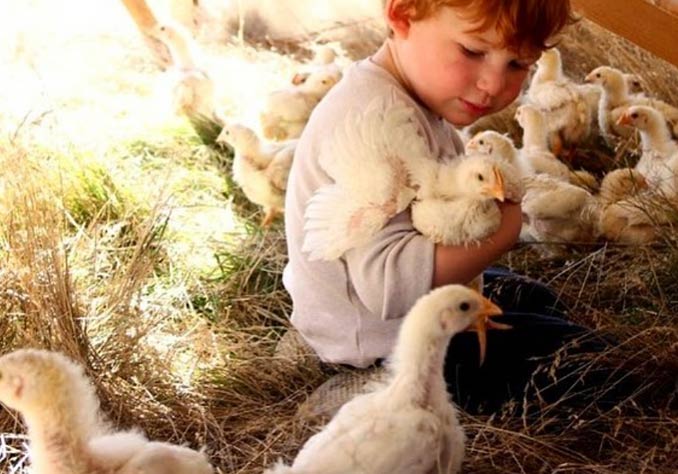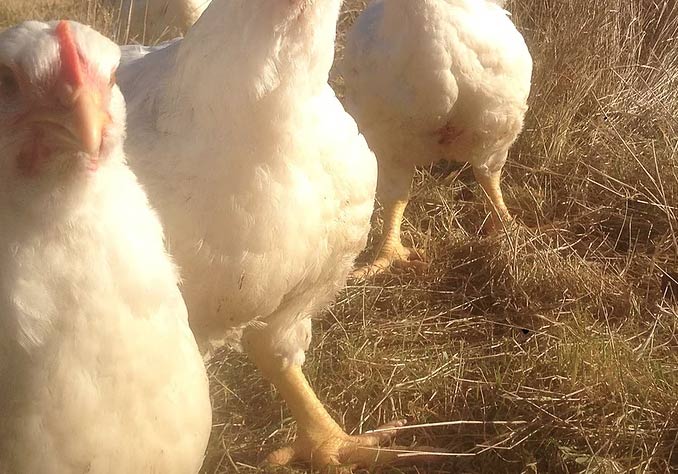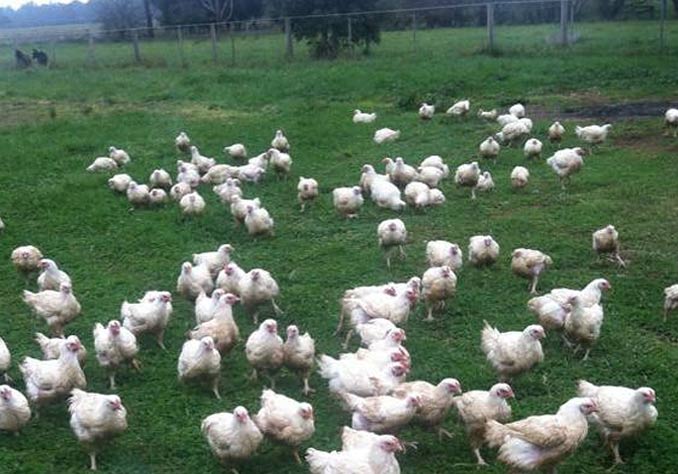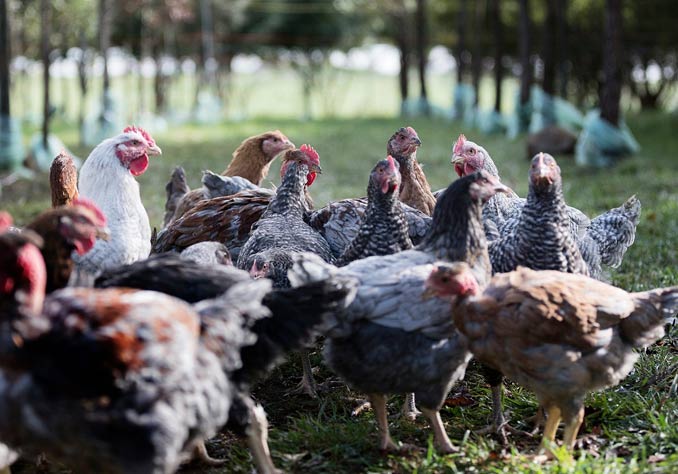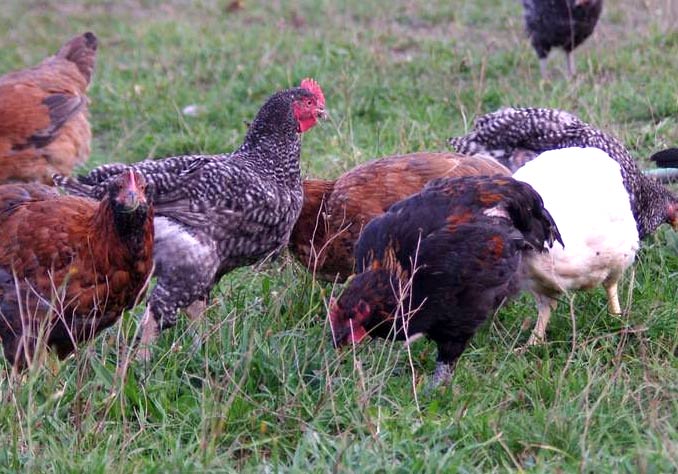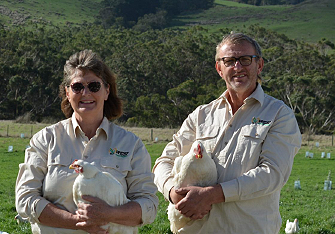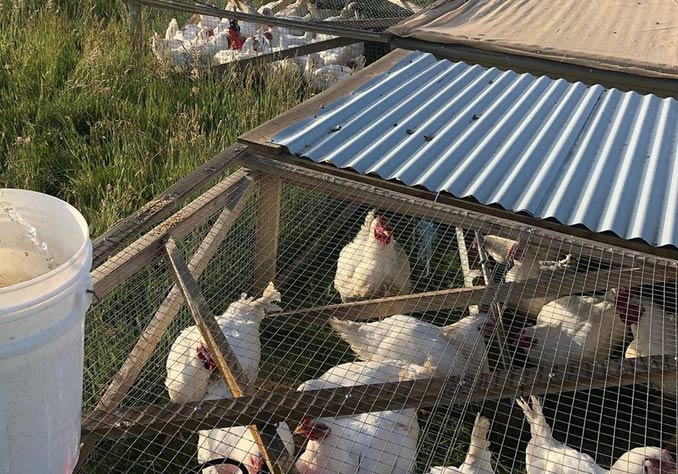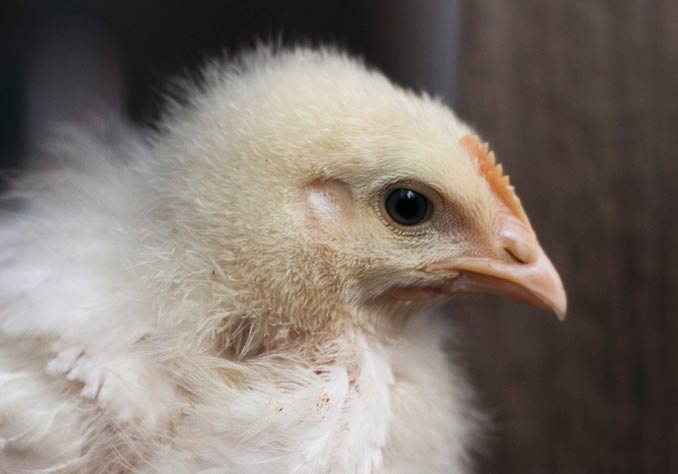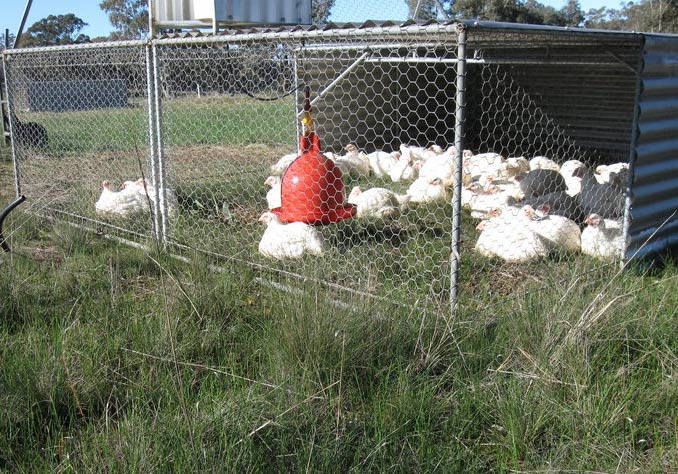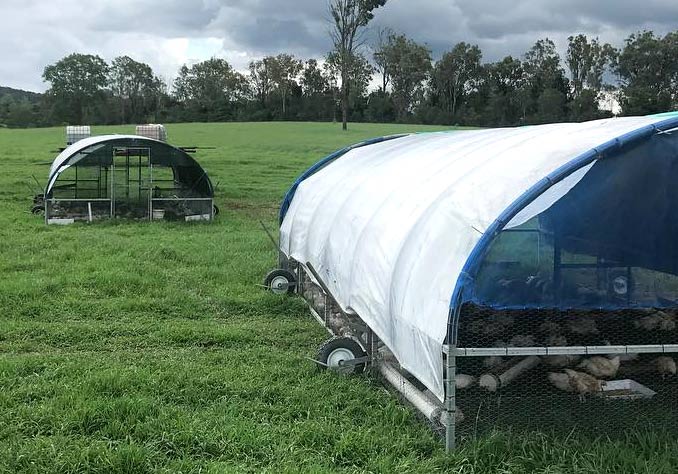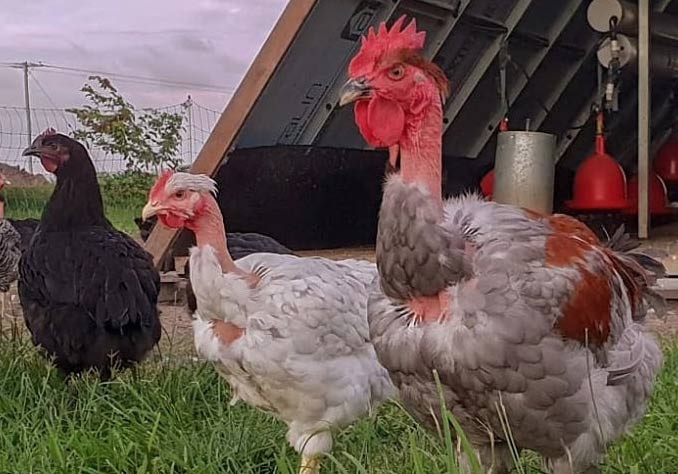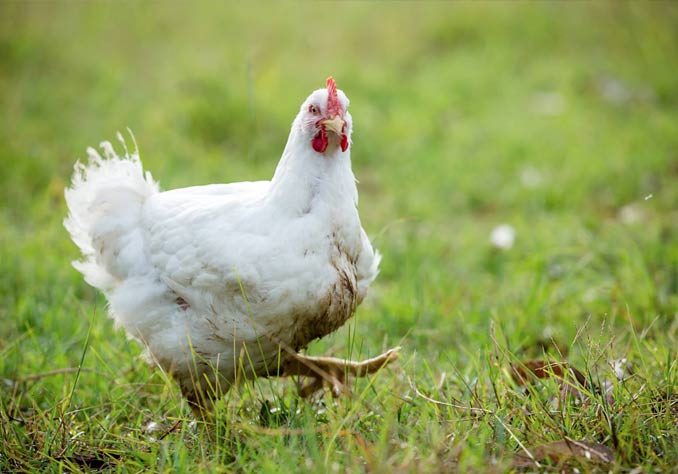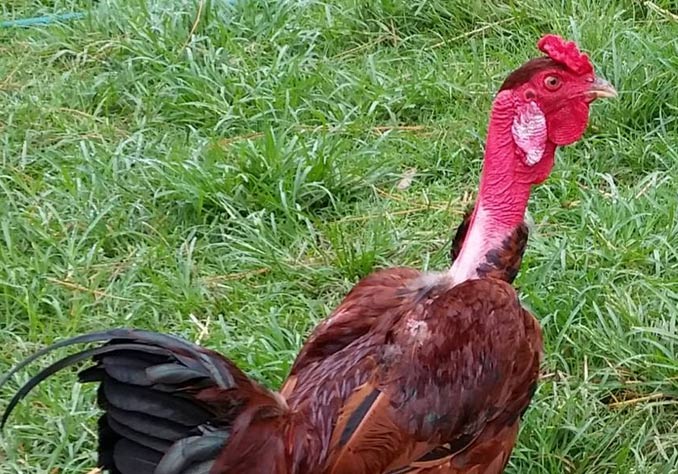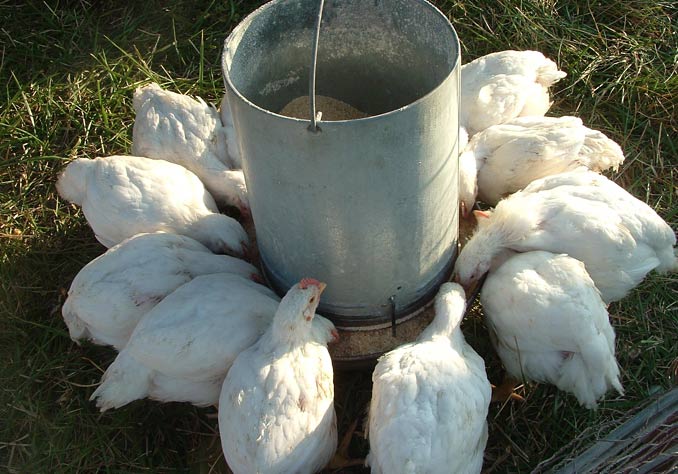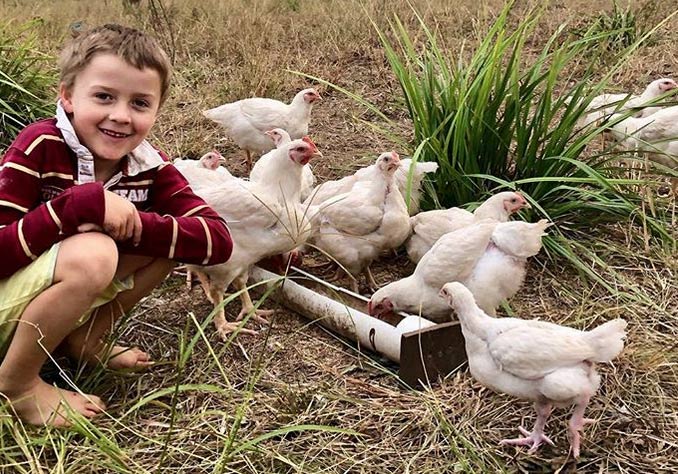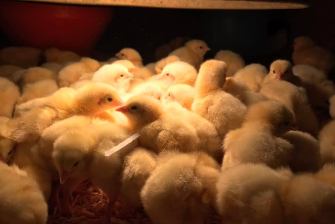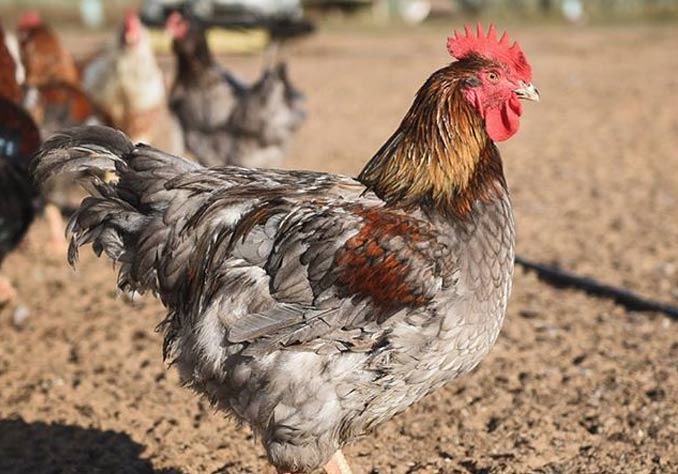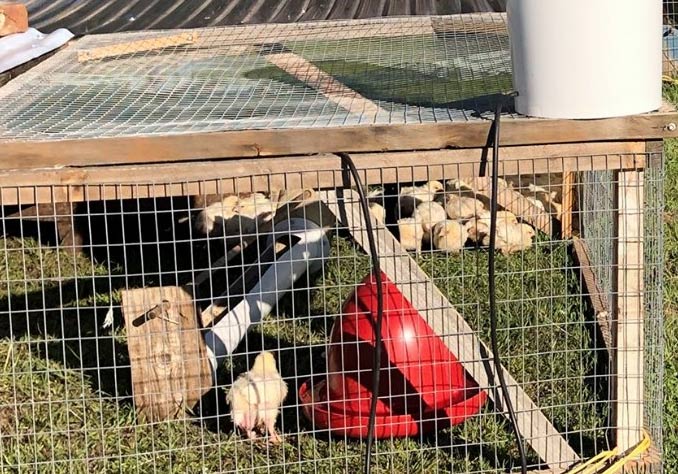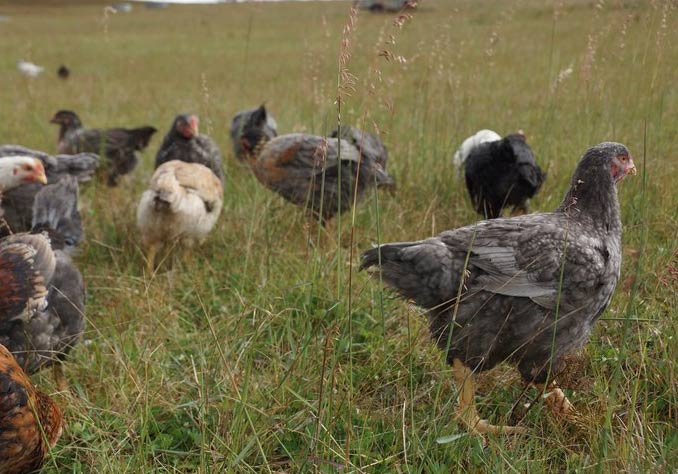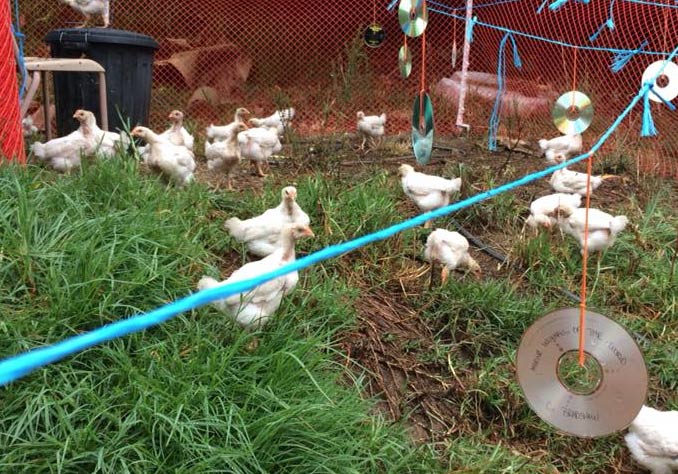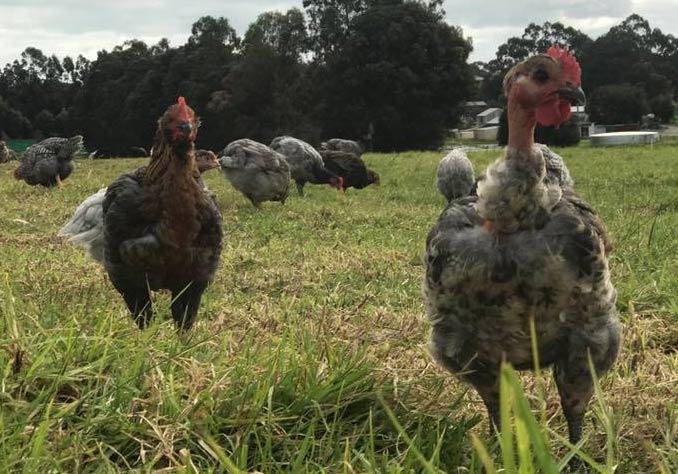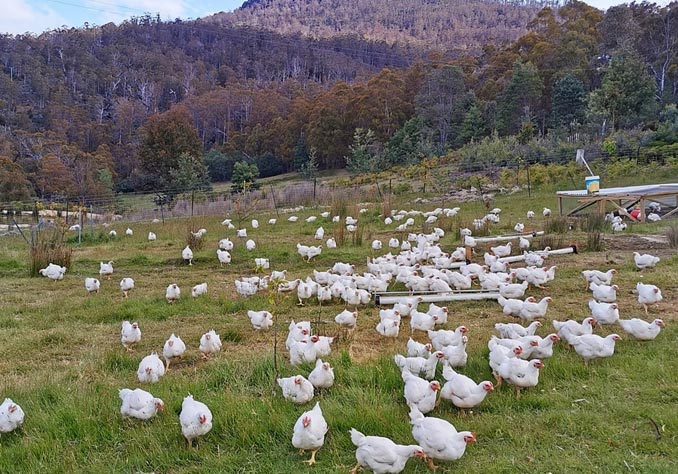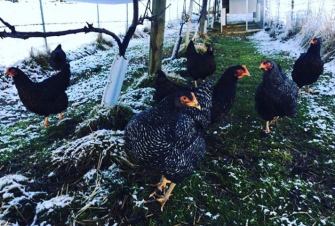Free range and pastured chicken directory
Just a generation ago, Australians raised chickens for their eggs. Cockerals and spent layers were culled for their meat; thus it was an occasional treat.
A dedicated meat industry began in the 1950s. Two family enterprises took the lead and began vertical integration, contracting out the growing of broilers. They formed associations with the supermarkets—Steggles with Coles, and Ingham with Woolworths.
The price of chicken has remained relatively unchanged, mostly due to the industry’s high productivity. In 1975, it took 64 days to grow chickens to market weight; today a chicken can be ready to eat in 35. Efficiency is also achieved through scale and high stocking densities; a typical new farm will house 320,000 chickens, in eight sheds, of 40,000 each. Up to 19 birds will share one square metre of space. There are associated health issues: leg weakness and skeletal development problems, respiratory disease and skin damage.
Two corporations dominate the 1,253,00 tonne-a-year chicken meat market: Ingham (owned by US-based TPG Capital) and Baiada (with brands Lilydale and Steggles). The majority of chicken is sold on supermarket shelves, now powerful gatekeepers to Australia’s food supply. Per capita consumption of poultry meat has soared from 10.5kg (1969–70) to 46.7kg (2019-20). One third of Australians eat chicken three or more times a week.
As eaters have grown more aware of their food and desired chickens free to range, industry saw an opportunity to grow. Their advertisements show a chicken on pasture and their descriptions say "free to roam"... but what's the picture behind the scenes?
The alternative? Eat better. Eat less. And source from a small farmer, if you can.
I've listed farms with chickens that live most of their lives on pasture; they are either free to range or housed in mobile units. Nutrients from their manure fertilise the soil to encourage growth of pasture and other crops. They may be from a slower growing breed, a good ranger, which will taste better.
Look for these brands at farmers’ markets and local independent stores near you. Taste the difference and tell your friends!
NB: Meat chickens in Australia have never been grown in cages and they have not been given hormones for decades.
Contribute: Do you know a farm that should be here? Email info@flavourcrusader.com for inclusion. Learn about the directories.
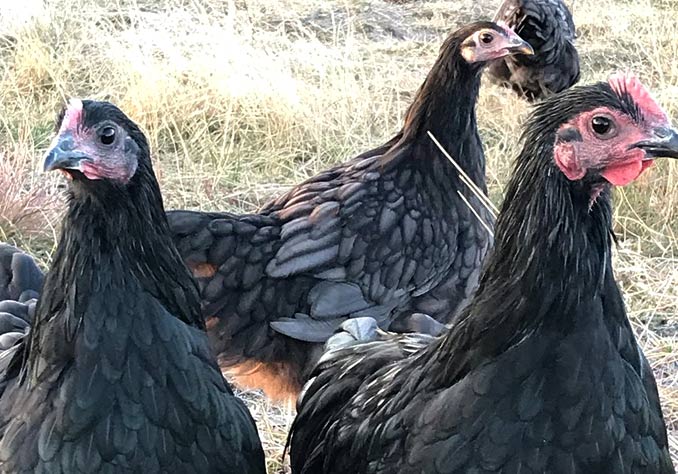 Arden Farm, Orange
Arden Farm, Orange
John and Kate Polain’s Australorps free range chemical-free pastures. The farmers use planned grazing that includes moving stock continually to fresh pasture. This encourages deep-rooted perennial grasses to improve the soil and build soil carbon.
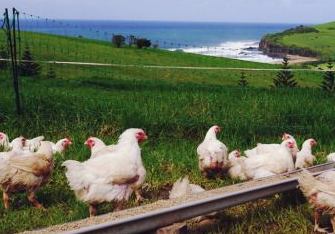 Buena Vista Farm, Gerrigong
Buena Vista Farm, Gerrigong
Fiona and Adam Walmsley grow Cobb chickens on pasture, and feed them an antibiotic-free grain mix, as well as lots of fresh green grass. They stock them up to 100 birds per batch, no overcrowding, no sheds, no artificial light, no antibiotics. They sell to their subscriber list, and if there are spares, via their website.
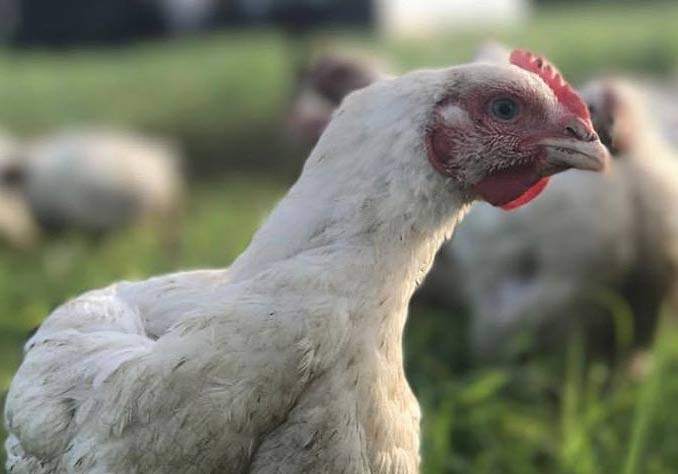 Brooklet Springs Farm, Brooklet
Brooklet Springs Farm, Brooklet
Georgina Goddard and Morgan Wilkie raise organic chickens on pasture. The chickens live in mobile sheds that are moved daily.
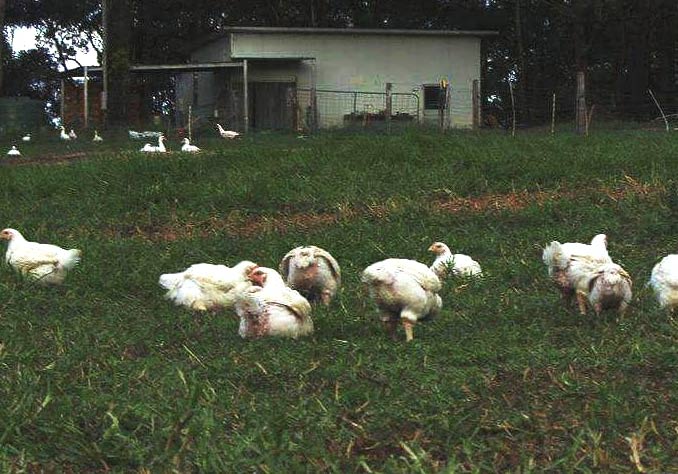 Burrawong Gaian, Barraganyatti
Burrawong Gaian, Barraganyatti
Beth and Hayden McMillan raise chickens from day-olds. The chickens forage in the pasture with a diet supplemented by corn. The McMillans hand process, pack and distribute their chickens; they are chemical and antibiotic-free.
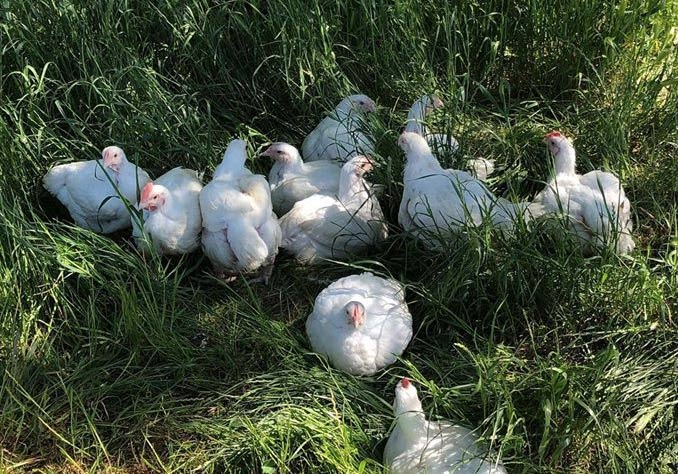 Canowindra Farms, Canowindra
Canowindra Farms, Canowindra
The Doldens’ chickens are pasture-raised from sunlight to sundown, and are processed chlorine-free. Tip from Caroline.
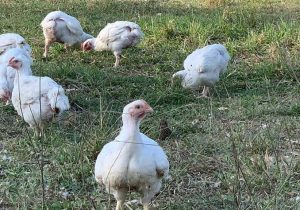 Ethical Farmers, Somersby
Ethical Farmers, Somersby
Ethical Farmers is the amalgamation of Egganic plus Grass Roots urban butchery – GRUB. They pasture raise Transylvanian Naked Neck cross and standard commercial chickens. The chickens are fed supplementary certified organic grain.
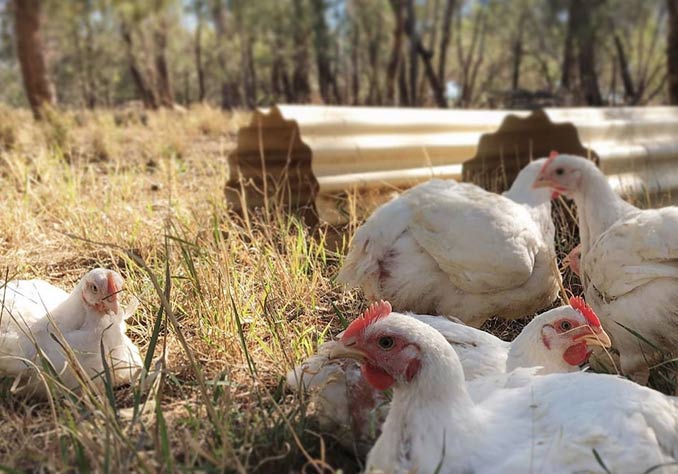 Eugowra Game Birds, Eugowra
Eugowra Game Birds, Eugowra
Brendan Sheldrick and Leanne Crofts slowly grow Leghorn cockerels (young roosters) over 12 weeks. They also grow commercial broilers on pasture in moveable tractors. The chickens' supplementary feed include local pumpkin, corn and lucerne meal. The farmer process the chickens in their on-farm abattoir, chemical-free. Got more info? Email info@flavourcrusader.com
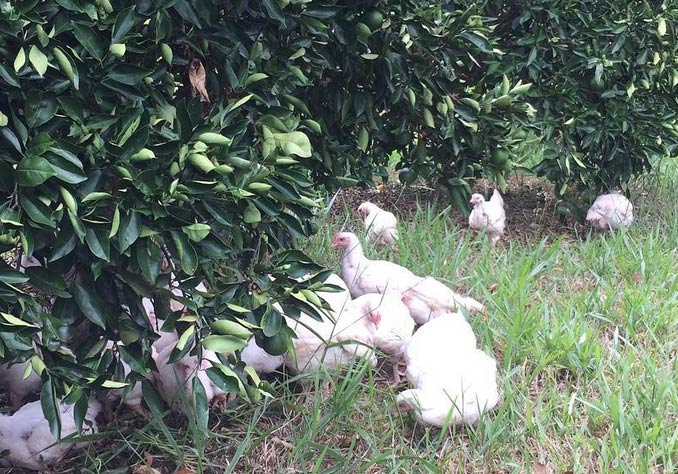 Foxies Farm, Newrybar
Foxies Farm, Newrybar
Andrew Cameron and Stuart Fox pasture raised organic chickens. The chickens scratch and forage the pasture and soil. Their grazing cells are moved regularly for the best result for our land and the health of the birds.
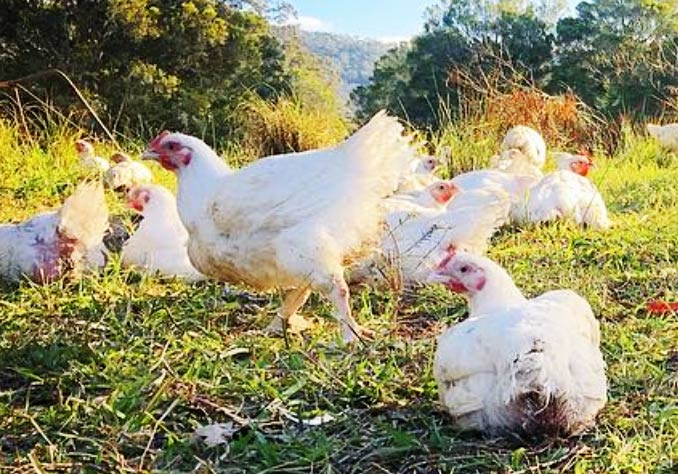 Full Circle Farm, Jilliby
Full Circle Farm, Jilliby
Shannon and Kylie Kelly rotate their chickens onto new pasture each day; the chickens free to eat grubs, bugs, and the like. The farmers process the chickens on-farm when they are between eight and twelve weeks old.
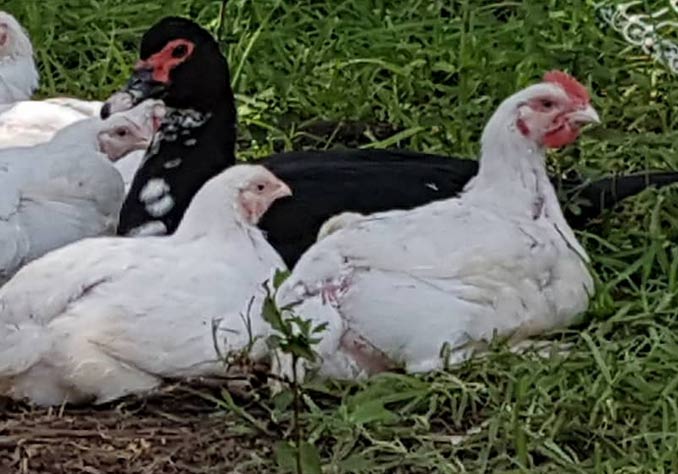 Grace Springs Farm, Sussex
Grace Springs Farm, Sussex
The family farm without the use of chemicals, with their main aim to improve the health of the soil and the pastures. The chickens are moved onto fresh pasture regularly.
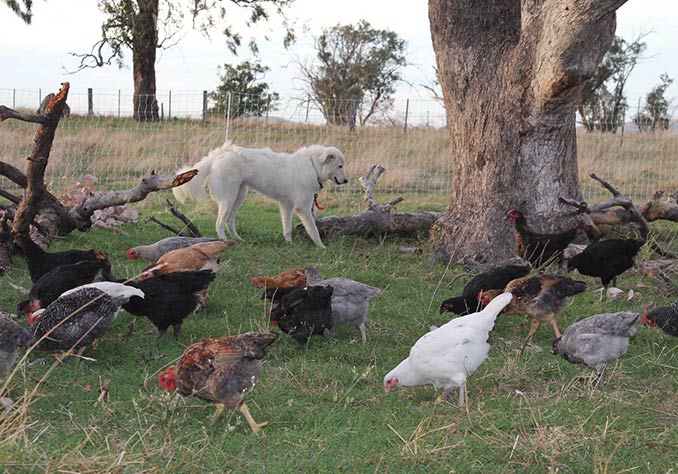 Grassland Poultry, Wellington
Grassland Poultry, Wellington
Bryan and Kim’s chickens are free to forage: they seek out seeds, greens, insects and micro-organisms in the soil. Alongside cattle and sheep, the chickens are rotated onto new pastures, returning nightly to their shelter and protected by their maremma dog. The husband and wife team grow Sommerlad chickens.
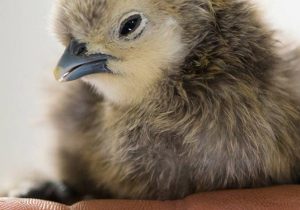 Great Northern Poultry, Gunnedah
Great Northern Poultry, Gunnedah
Cameron Ward and Angus Shepherd practice holistic management and regenerative farming, with poultry health and well-being of the highest priority. Their poultry is pasture raised on open fields. They grow Chinese Silkies, a crossbred black and commercial white table birds.
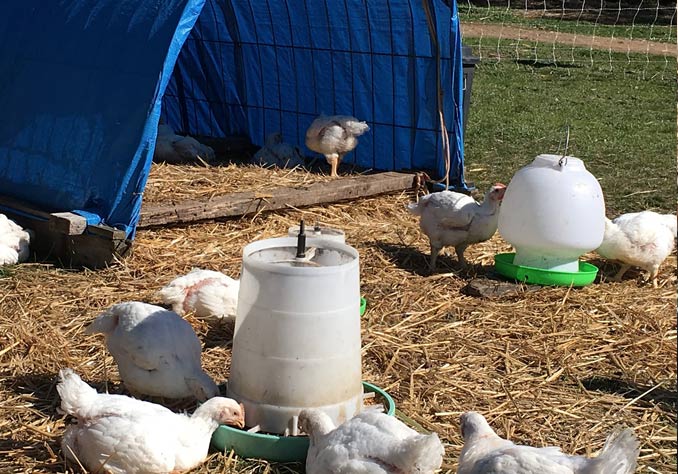 Highfield Farm and Woodland, Mt Adrah
Highfield Farm and Woodland, Mt Adrah
The chickens are raised on pasture and free to find grubs and insects, free to dust bathe and clamber among tree roots. At the abattoir, the chickens are processed with respect; they are not pumped with water nor tumbled in chlorine.
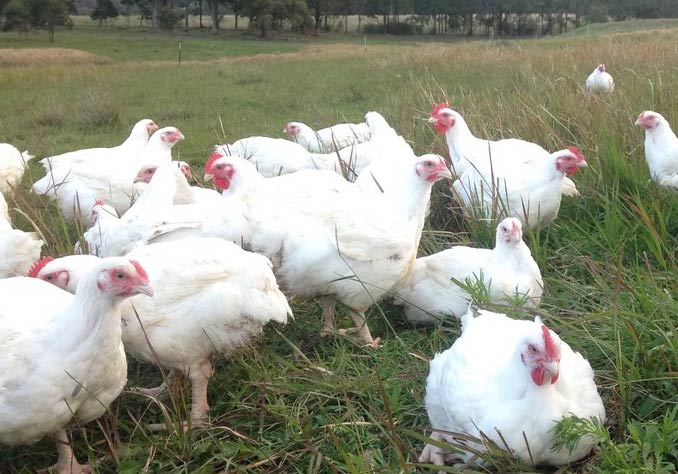 Little Hill Farm, Newcastle
Little Hill Farm, Newcastle
Simon and Kelly’s chickens are free to forage for insects, graze on lush grass and dust bath at will. The wild treats are supplemented with quality grain mixes, mineral-rich seaweed meal, calcium, garlic and apple cider vinegar. The chickens are completely free ranging, protected by two Maremma dogs.
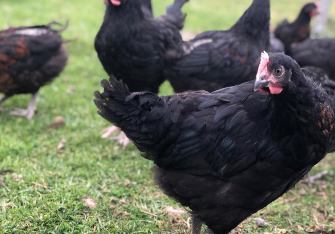 R and R Roosters, Llandillo
R and R Roosters, Llandillo
Ryan and Rebecca Cirello buy day old Rhode Island Red or Australorp male chicks from a layer farm hatchery. They then grow the roosters out for 16 weeks and process the roosters onfarm.
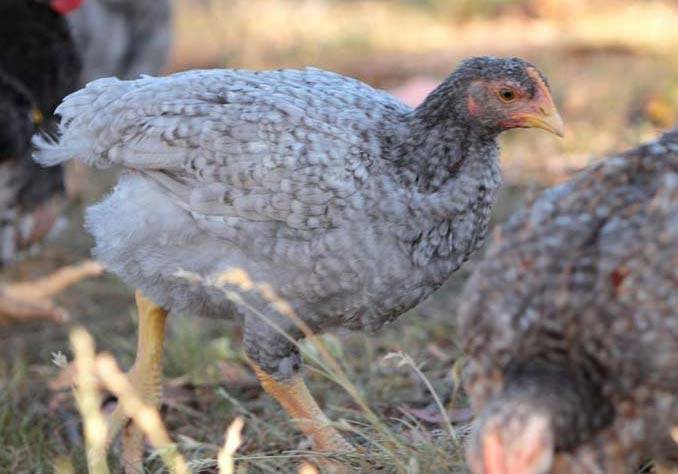 Topi Open Range, Bungwahl
Topi Open Range, Bungwahl
Sue and Andy Williams’ chickens live on open green pasture, drink fresh rainwater, play in dust baths, eat grass and Australian certified organic feed. They regularly move the caravans so that the chickens are always on fresh grass, which improves the biodiversity of the soil.
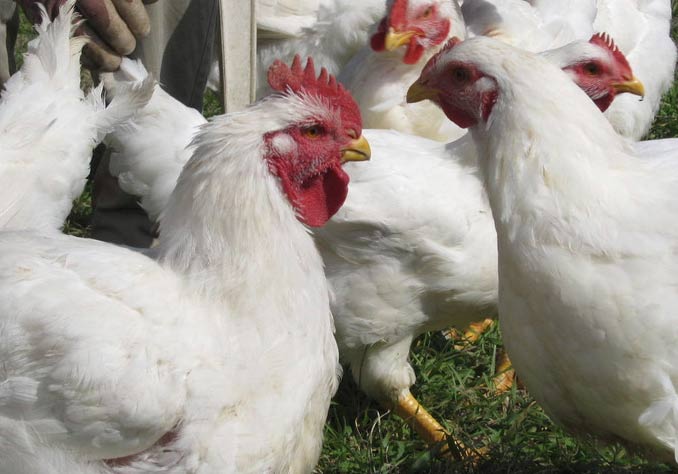 Wynlen House, Braidwood
Wynlen House, Braidwood
To sustain healthy chickens, Bronwyn Richards and Helen Lynch graze them on mineral-rich soils, and supplements their feed with farm-made mash. Chickens free range during the day and are penned safely at night.
